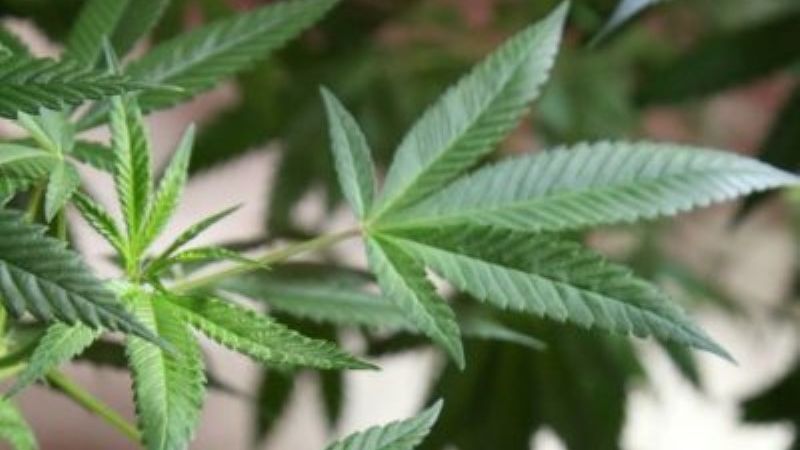As New York legalizes marijuana use, state-based banks could see a boom in related businesses seeking services
When New York became the 15th state to legalize recreational cannabis, the move added to a growing number of states willing to enter this bustling market. Recreational marijuana sales are expected to eventually generate $350 million in yearly tax revenue and billions of dollars in annual sales.
But there are still complications, especially for financial institutions servicing marijuana-based businesses.
Marijuana is still considered illegal as a Schedule 1 drug by the federal government. Financial institutions therefore are prohibited from providing banking services to businesses that violate any federal law. And while New York-based marijuana businesses will be legal under state law, banks will continue to struggle with providing banking services to marijuana businesses for fear of federal prosecution.
Questions then remain whether New York’s decriminalization of marijuana changes anything, or if the move puts additional pressure on Congress to pass a federal bill to legalize marijuana.
“Ending the federal marijuana prohibition is necessary to right the wrongs of this failed War on Drug and end decades of harm inflicted on communities of color across the country,” said Senate Majority Leader Chuck Schumer (D-NY), along with Cory Booker (D-NJ) and Ron Wyden (D-Ore.), in a February 2021 joint statement.
Financial crimes expert Gabe Hidalgo, managing director at K2 Integrity, spoke with us about the future of cannabis banking reform and whether there is light at the end of the regulatory tunnel.
Thomson Reuters: Why is New York’s legalization of recreational cannabis significant?
Hidalgo: New York is regarded as one of the most progressive states in the nation and it tends to lead by example, as it did with the Bitlicense. Other states will see how New York develops its regulatory and legal controls on legal cannabis and may seek to emulate it. Further, the economic effects from the COVID-19 pandemic have drained many states’ abilities to meet their budgeted obligations. As such, taxing recreational cannabis sales within each state has become a viable new taxable income source.
The pressure on the states that do not legalize cannabis grows as neighboring states decide to legalize due to the potential loss of taxable revenue. As more states move to legalize, the economic pressure to augment state budgets with taxes on recreational cannabis will continue to grow. That may create an environment where more and more states allow recreational cannabis to be sold legally in order to expand a shrinking tax base.
Thomson Reuters: In 2019, 91% of Americans indicated they supported legal medical or recreational use, according to the Pew Research Center. Do you think the federal SAFE Banking Act is any closer to winning bipartisan support in the U.S. House and Senate?
Hidalgo: Passage of the SAFE Banking Act will likely require a majority of states to legalize the sale and usage of recreational cannabis. Without majority legalization, it is unlikely we will see any bipartisan support in either the House or the Senate.

Thomson Reuters: How quickly can dispensaries in New York begin operating? Are we going to see dispensaries this year?
Hidalgo: It appears that the soonest that the licensing, regulatory oversight, and legal frameworks needed for opening dispensaries in New York will be implemented is late-2022. However, for any financial institution in New York that is looking to offer services to a licensed dispensary or other cannabis legal vendors, now is the time to start reviewing your current compliance programs.
Thomson Reuters: If cannabis is still illegal under federal law, what can cannabis businesses do to obtain banking services?
Hidalgo: Cannabis businesses within New York may receive banking services with New York-based banks since that would encompass intrastate commerce and that would be governed by state law.
Thomson Reuters: How likely is it that banks located in New York will begin accepting new cannabis customers? Will this open up banking services or are we back to square one?
Hidalgo: Every New York bank that is considering offering licensed cannabis businesses some form of product or service should review its compliance program to make sure that they have the appropriate policies, procedures, and resources necessary to oversee and monitor their new cannabis customers.
Within New York, the legalization of recreational cannabis may provide New York-based banks with some comfort on an intrastate level as there could be some state-based regulatory guidance that may be issued by NYS Department of Financial Services (DFS). This guidance would address what DFS’ expectations are when New York-based banks decide to offer services to New York-based cannabis businesses.
Overall, I believe that in New York this will provide local banks with the impetus to begin offering banking services to licensed and registered New York-based cannabis companies.







